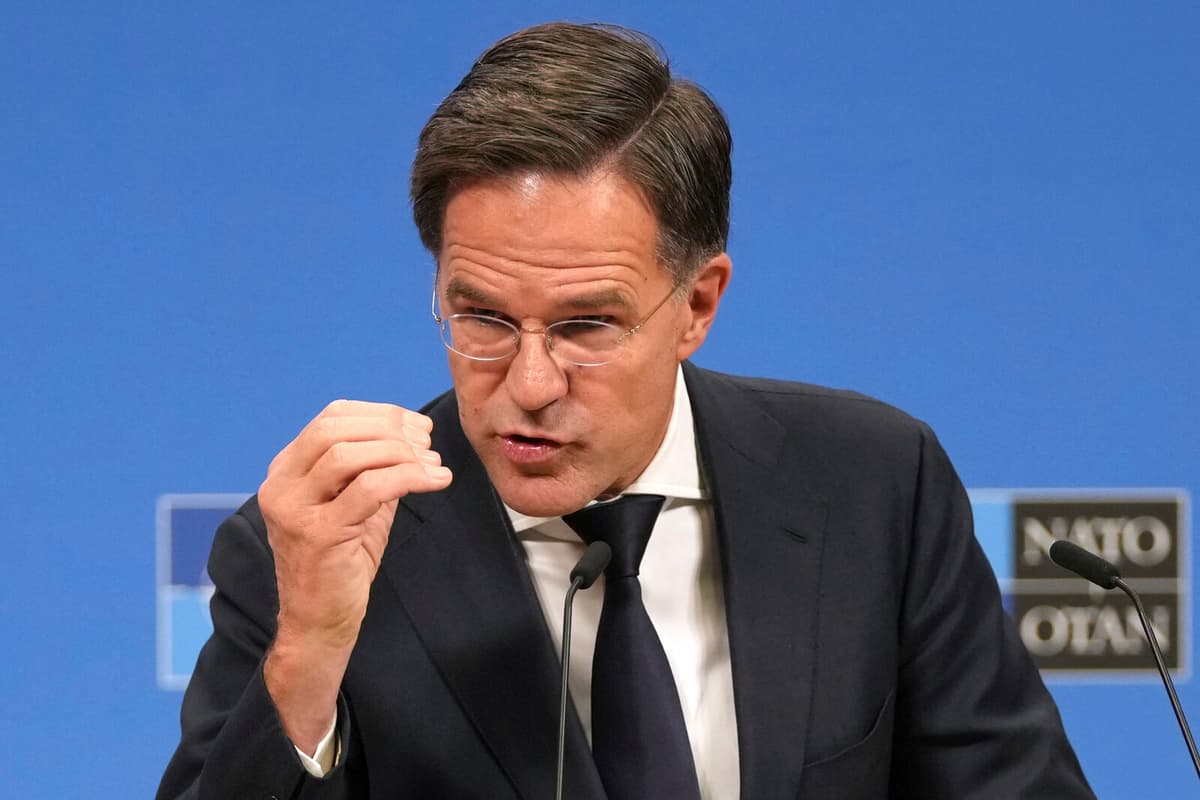When NATO countries' foreign ministers gather in Brussels, Russia's war in Ukraine is once again the main issue.
A difference is noted, however, compared to earlier times, as more and more people are now clearly focused on some form of peace talks being expected. This is not least due to the promises of a swift end to the war that have come from the USA's incoming president, Donald Trump.
These meetings are intended to enable Ukraine – if they choose to enter into peace talks – to do so from as strong a position as possible. That's what we'll be focusing on over the next two days: how we can get more military aid to Ukraine, how we can coordinate better, says Secretary-General Mark Rutte at his press conference ahead of the meeting.
Peacekeeping Forces?
Rutte, however, does not provide any details on what NATO or the international community could do to secure peace or a ceasefire.
In the corridors, there is talk of what kind of security guarantees could be given, what future support to Ukraine would look like, and whether NATO countries could contribute with peacekeeping forces – possibly together with soldiers from China or India.
Ukraine itself is pushing hard for a formal invitation to membership in NATO. However, it is still a long way off due to resistance from countries like Hungary and Slovakia, as well as Turkey and the USA.
Cautious Sweden
The Baltic countries openly support an invitation, while Sweden is keeping a low profile.
Ukraine belongs in NATO, but currently, there is no consensus. And one must also live up to the requirements that are set, emphasizes Foreign Minister Maria Malmer Stenergard (M) in Brussels.
She is also cautious when it comes to expressing herself about potential Swedish peacekeeping soldiers on the ground.
There are no such plans right now in Sweden. We have no peace. Our only priority right now is to ensure that Ukraine negotiates at a potential negotiation from a better position than they would today, says Malmer Stenergard.
NATO countries' foreign ministers are gathered in Brussels on Tuesday and Wednesday to primarily discuss the situation surrounding Russia's war in Ukraine, including talks with Ukraine's Foreign Minister Andrij Sybiha.
In parts of the meeting, EU's new foreign policy chief Kaja Kallas, who took office as recently as Sunday, also participates. Additionally, the foreign ministers hold talks with Jordan's King Abdullah.
A final press conference with Secretary-General Mark Rutte will be held at 11:45 am on Wednesday.






